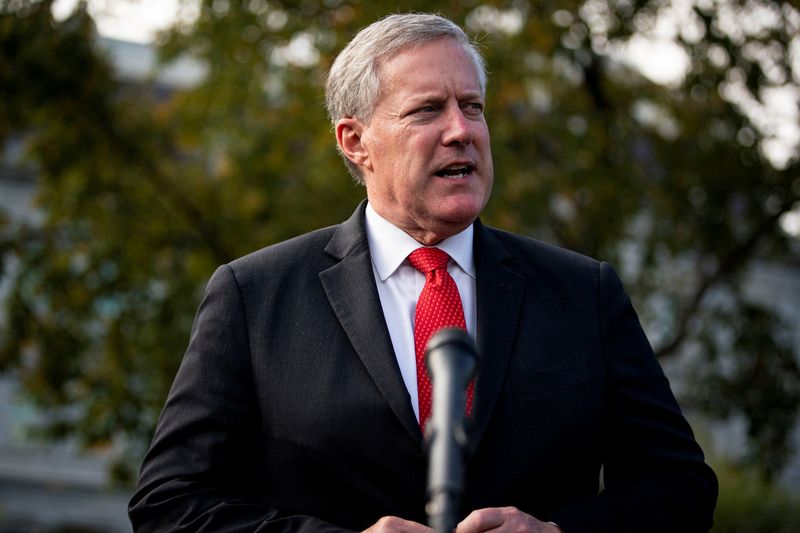By Jacqueline Thomsen
(Reuters) - Former White House chief of staff Mark Meadows' conversations with then-President Donald Trump during last year's siege on the U.S. Capitol should not be shielded from lawmakers, a lawyer for the congressional committee probing the riots told a judge in Washington on Wednesday.
U.S. District Judge Carl Nichols did not immediately rule on whether the subpoenaed communications must be provided to the Jan. 6 committee. Meadows' attorneys say the messages are protected by executive privilege, which allows presidential communications with top aides to remain private, and that Meadows has "absolute immunity" from being called to testify.
The hearing was held days after a federal judge in Florida agreed in a separate case to a third-party review of documents seized from Trump's Mar-a-Lago resort to determine whether they are protected by executive privilege.
Meadows initially cooperated with the Jan. 6 committee last year, but later sued the panel over the subpoenas. The U.S. House of Representatives earlier this year voted to refer Meadows to the U.S. Justice Department for contempt of Congress, but the department declined to charge him.
The select committee told the court it has narrowed down the information it wants from Meadows, including what he witnessed at the White House during the riots. U.S. House lawyer Douglas Letter argued that those talks are not protected because they did not concern official White House business.
Letter acknowledged the committee is not seeking a court order to compel Meadows to appear before congressional investigators, but hopes he will if the judge rejects Meadows' legal arguments.
Meadows’ lawyer George Terwilliger told the court the former chief of staff has already provided the committee with all the nonprivileged information it is seeking and turned over a log of privileged material.

He said having Meadows testify would undermine the confidentiality typically granted to high-level White House discussions.
U.S. Justice Department lawyer Elizabeth Shapiro told the court the department does not believe absolute immunity applies to former senior aides once a president leaves office, but that protections for top White House communications remain in place.